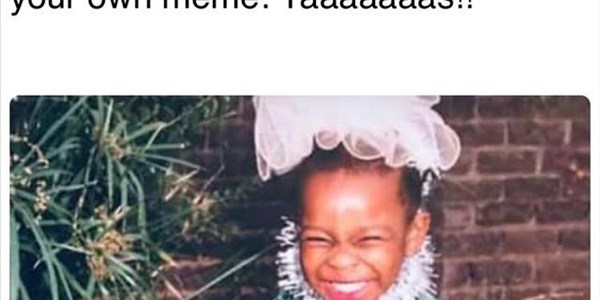General
#WorldCopyrightDay: Do you meme it's illegal to share memes?─── OLEBOGENG MOTSE 15:36 Tue, 23 Apr 2019

With the international community celebrating World Book and Copyright Day on April 23, the OFM News team takes a look at the recent dialogue surrounding the rather innocent act of sharing memes, gifs and other content on social media platforms.
We look further into whether doing so, all in an effort to generate a few laughs or some views, may, in fact, be teetering on violating the creator’s copyrights.
Articles 11 and 13, in the European Union Directive on Copyright in the Digital Single Market, have recently been at the centre of panic around the world, reason being, the internet is a global entity, therefore any laws passed in any major territory can spill over to other countries. So what do these articles – 13 in particular – of the European Union Directive on Copyright in the Digital Single Market say about the sharing of copyrighted material roughly?
Well…
These articles make social media platforms, like YouTube, Facebook, and Twitter, liable for copyright infringements which they aren’t at present legally. It, therefore, compels these platforms and others to remove copyrighted material from their websites, something which they weren’t bound to do previously unless the owner of the material directed them to do so. The now deceased musician, Prince, was such an example. Prior to his death in 2016, the musician – a huge proponent of upholding artists’ intellectual property rights – often demanded that his music be taken off of platforms like YouTube. It has been reported that the purpose of the European Union’s Directive on Copyright in the Digital Single Market has been created to ensure that the rights of creators and artists are protected and revenue is directed to the owners/artists of the material as opposed to the media platforms, like Prince and many other artists have long hoped and envisaged.
While specific tweaks to article 13 made earlier this year made memes safe "for purposes of quotation, criticism, review, caricature, parody, and pastiche", concerns have been raised regarding how platforms are going to sift through content and identify what is plagiarised and what is not.
According to https://www.wired.co.uk/article/what-is-article-13-article-11-european-directive-on-copyright-explained-meme-ban, “An earlier version of the Directive referred to ‘proportionate content recognition technologies’ which sounds an awful lot like it’s asking platform owners to use automated filters to scan every piece of uploaded content and stop anything that might violate copyright from being uploaded”.
Critics of the legislation are now asking: With memes and gifs relying on copyrighted film and tv scenes – albeit classified as a parody under the legislation – how will filters be able to distinguish between memes and other copyrighted material anyway?
Now you may wonder, how does this affect me, as a South African?
According to an article by Go Legal (https://www.golegal.co.za/meme-copyright-illegal-use/) the “South African Copyright Act 98 of 1978, there is a principle known as fair dealing which states that copyright shall not be infringed if, for example, the work in question is used for the purposes of research, or private study, or reporting current events. However, this principle is likely to soon be replaced (once the Copyright Amendment Bill is adopted in South Africa) by the principle of fair use which is recognised and applicable under US Copyright laws.”
OFM News













